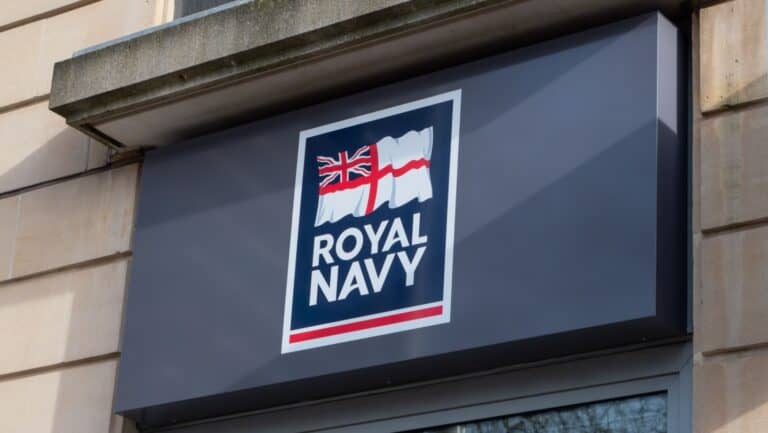Military claims can be brought for many things, including accidents at work, heat and non-freezing cold injuries (NFCI), sexual assault, post-traumatic stress disorder (PTSD), noise induced hearing loss (NIHL), and bullying, harassment and discrimination. Injuries can be physical or psychological and can range from relatively mild to career-ending and life-changing.
If you or a loved one has sustained an injury while serving in any branch of the armed forces or reserves – or a loved one has died while serving – you may be entitled to claim compensation from the MOD or whoever else is responsible. What’s more, making a claim can have benefits beyond the financial gain, as we outline below.
It can help with your physical recovery or adjustment
If your injuries are physical, you need access to the best treatment, rehabilitation, aids and equipment to give yourself the best possible chance of recovery – and, depending on the severity of your injury, regaining some form of independence. Bringing a compensation claim against the military could help pay for any associated costs, such as on-going physiotherapy, specialist equipment, or, if you’re an amputee, access to the best prosthetics or wheelchairs.
You can access help for your mental health
PTSD and other mental health conditions, such as depression, anxiety, anger management issues and alcohol dependency, can end military careers – not to mention making it harder to transition into civilian life. Whatever your mental health needs, the money from a compensation claim can help fund effective and tailored treatment that could help turn things around for you. From providing access to psychiatrists who can help you learn to manage your symptoms to giving you the resources you need to continue your journey towards mental wellbeing, making a claim could help you take active steps towards a brighter future.
It can cover the costs of care
Depending on the extent of your injury, you may need help with day-to-day tasks as well as regular – or round-the-clock – care. Getting the right kind of care and support could be crucial to help you get back to living your life to the fullest. Whether this is provided by loved ones on a voluntary basis or by professional carers, compensation can help cover costs. This means you will be able to recompense your friends and family for their time and any loss of earnings they experience, and/or pay for professional support.
It can reduce the impact on your working life
Serving in the military can provide you with a long-term and incredibly fulfilling career but negligence or failures by the MOD could see that career being cut short. If this happens, a compensation claim can cover any lost income you incur, as well as any future income you may miss out on. This takes into account any promotion opportunities you’ll miss out on and any lost pension contributions. You can also include the costs of training for a new career outside the forces, allowing you to move on and find something else you love to do.
It can help you adjust to life after the Forces
Leaving the military and transitioning to civilian life can be difficult without the right support and guidance. Of course, when you’ve made the choice yourself, you’ll have had time to plan for your future and put measures in place to make sure you prosper outside of the military. If the decision is taken out of your hands because you’ve been medically discharged through no fault of your own, it can make this transition harder than it has to be. If you pursue a military compensation claim through us, we can also help put you in touch with charities and support groups that can help you through the transitionary period and beyond.
A claim could be instrumental in preventing further trauma
In bringing a claim against the military, you may be able to help change the system that contributed to your injuries.
The Armed Forces are a long-standing institution in the UK, with a complex structure and well-established set of rules. At times, this means they’ve been slow to modernise, incorporate much-needed changes or adapt to the changing needs of service personnel. Whether this means discriminatory and bullying attitudes persist, or harmful practices continue, it leaves service personnel in unnecessary danger. By seeking compensation, you can help expose these deficiencies and hold the MOD to account.
Raising these issues in a civil claim – rather than (or in addition to) going internally through the MOD’s complaints system – can have wide-reaching impact. Hopefully, it can help to make the Forces more inclusive, prompt them to action the changes needed, or pressure them to discipline the individuals responsible. All this could be instrumental in protecting new recruits and existing service personnel from the same trauma you experienced.
How much compensation for military claims can I expect?
You can pursue your military claim under the Armed Forces Compensation Scheme and/or through the civil court. Contact us for a no obligation conversation, and we can also help advise on which is the best route for you.
The amount of compensation you’ll be awarded depends on the type of injury you sustained, how severe it was, and the extent of recovery that may be possible. Compensation can cover your pain and suffering, as well as any past and future financial costs incurred as a result of your injury.
Examples of losses and expenses you can claim include:
- Loss of service and civilian earnings
- Delay or loss of promotion
- Loss of pension
- Loss of other service benefits and bonuses, such as the resettlement grant, commitment bonus, specialist pay and allowances, subsidised quarters and Learning Credits
- Care costs
- Specialist aids and equipment
- Treatment and rehabilitation costs
- Adapted housing costs
If you’re not sure if you have a case or need more information, our team of expert solicitors have years of experience of bringing military claims and representing both former and current service personnel. We can help determine the best route to take to gain both compensation and accountability from the Armed Forces.















